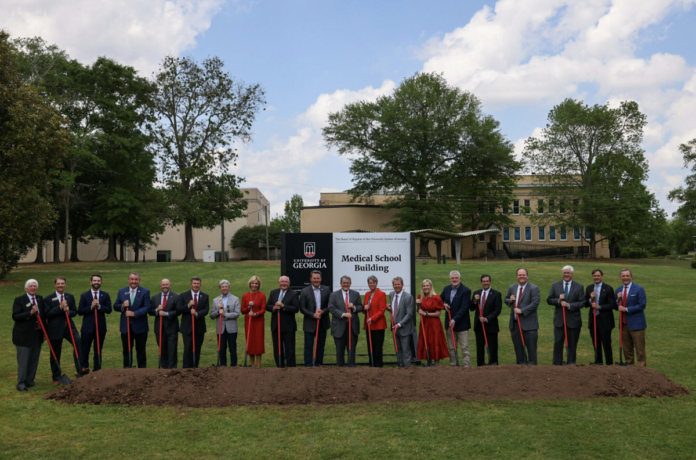
The University of Georgia School of Medicine submitted its official application for accreditation to the Liaison Committee on Medical Education in late November. This is an important benchmark in the development of the newly formed school and a major milestone in UGA’s efforts to enhance health care throughout the state.
An accrediting body for medical education programs leading to a Doctor of Medicine degree, the LCME is jointly sponsored by the Association of American Medical Colleges and the American Medical Association.
The LCME will review the application in late February.
“This achievement marks yet another remarkable milestone for the School of Medicine, the University of Georgia, our community, and the entire state,” said Founding Dean Shelley Nuss. “I am profoundly thankful to all the individuals who have supported the School of Medicine and those who have tirelessly dedicated countless hours to making this momentous occasion possible.”
In November, the Board of Regents of the University System of Georgia approved the University of Georgia to grant a Doctor of Medicine degree from its School of Medicine.

The Board of Regents authorized UGA to establish its own independent School of Medicine in February. In April, the university held a ceremonial groundbreaking for a new medical education and research facility on its Health Sciences Campus.
The proposed structure will measure approximately 92,000 square feet and will include research laboratories, medical simulation suites, standardized patient rooms, clinical skills labs, an anatomy lab and a medical library.
In September, the university announced that Yana Zavros, a prominent gastric cancer researcher, will join UGA as the inaugural Georgia Research Alliance Eminent Scholar in Molecular Medicine. Zavros, who also conducts research on Cushing’s disease, will recruit a cohort of additional faculty researchers and create a research center in the School of Medicine.
With support from donors, the UGA Foundation and UGA Research Foundation, nearly $46.2 million has been committed to match the state’s support for the medical education and research building. The university is working to secure the remaining $3.8 million needed to complete the project.
The School of Medicine will generate between $1.8 billion and $2.3 billion in cumulative economic impact on the state of Georgia by 2040, according to an analysis conducted by the nationally recognized consulting firm Tripp Umbach.
This article comes to Now Habersham in partnership with UGA Today







